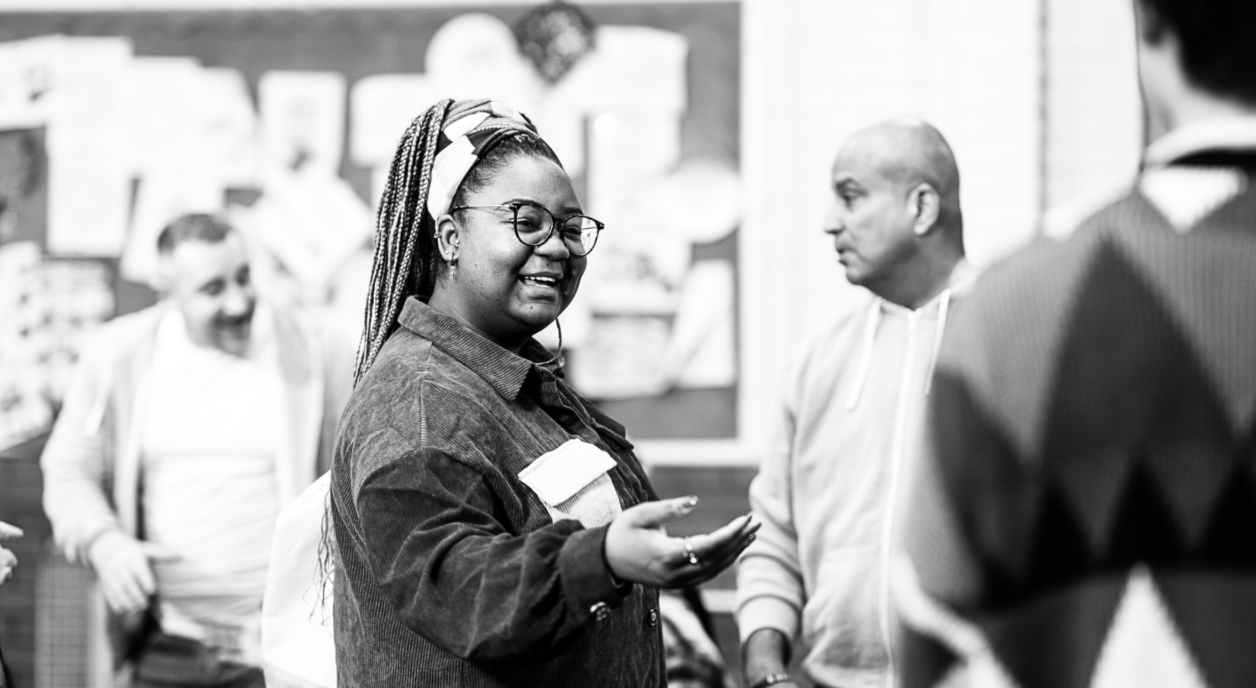Investing in capacity building: The vital role of general operating support for BIPOC-led nonprofits

Women of color comprised 20.3% of the United States population in 2021, an increase from 18.4% in 2010, yet nonprofits that support their needs lack the necessary financial resources. According to the Ms. Foundation for Women’s report, Pocket Change: How Women and Girls of Color Do More with Less, as of 2017, the median foundation grant awarded to “organizations by and for women and girls of color” was $15,000. Further, in 2012, of the $4.8 billion philanthropic investments allocated to the U.S. South, just 5.4% went to programs focused on women and girls and less than 1% to programs focused on Black women and girls. To create impactful change, innovative approaches are needed—including bolstering nonprofits led by and serving women and girls facing inequities with general operating support grants.
The need for capacity building
In 2020, the Black Women’s Mental Health Institute was a volunteer-led nonprofit in Birmingham, Alabama. Like 20% of the Southern Black Girls and Women’s Consortium’s (Southern Black Girls) grantee partners, the group had not received foundation funding before. The general operating support grant they received allowed founder and CEO Dr. Nadia Richardson to build the organizational capacity needed to meet increasing requests for mental health support. Today, the group offers more than 200 hours of free counseling to Black women and girls.
This is just one example of what happens when philanthropy invests in BIPOC (Black, Indigenous, and people of color) leaders with general operating support that helps address long-term unmet needs. For philanthropists looking to invest in locally led authentic solutions that deliver results and measurable change, general operating support grants are that pathway forward.
The importance of capacity building for small BIPOC-led or Black women-led (BIPOC CEO, executive director, or president and majority BIPOC board) BIPOC-serving nonprofits cannot be overstated. These organizations are on the front lines, addressing the multifaceted needs of their communities with limited resources and often facing systemic barriers to sustainable growth. Imagine the transformative impact of philanthropy prioritizing investment in the capacity of BIPOC-led organizations through general operating support grants—providing the flexible funding necessary not only to strengthen organizational infrastructure but also to foster innovation and drive meaningful impact.
Project-based vs. general operating support grants
The core issue is that traditional project-based grants, while valuable, may only partially address the holistic needs of these nonprofits. While project grants offer specific funding for programmatic initiatives, by definition, they often exclude critical operational expenses such as staff salaries and other overhead costs. These constraints can leave organizations scrambling to cover essential expenses and unable to focus on long-term sustainability and strategic growth.
Unlike project-specific grants, general operating support grants provide unrestricted funding to support an organization’s day-to-day operations, such as paying staff, investing in technology infrastructure, and allocating resources where they are most needed.
BIPOC- and BIPOC women-led and -serving nonprofits face funding gaps
BIPOC-led nonprofits face unique challenges that increase the urgency for general operating support grants. A Nonprofit Finance Fund survey found that white-led nonprofits were nearly twice as likely to receive unrestricted grants. BIPOC-led organizations have historically encountered systemic barriers to funding, perpetuating cycles of underinvestment and resource scarcity. Such barriers include:
- Small organization size: When small organizations are excluded, it limits their access to the capacity-building resources they need to grow.
- Not having a traditional operating structure: Smaller BIPOC-led organizations are creative by necessity, given resource constraints. The lack of a conventional structure may prevent organizations from getting funding to build the internal infrastructure needed.
- Project grant-only opportunities: Funding opportunities restricted to project grants can be very limiting for organizations that may be aligned with the program but need more flexibility in how to use grant monies.
- Being in the South or rural areas: Many funders have geographic targets that often exclude rural communities and states in the South. Deep South states have just a fraction of the grant opportunities available to urban areas and other growth-oriented communities.
The resulting financial strain compels BIPOC-led nonprofits to operate with minimal staff (often unpaid), outdated technology, and inadequate infrastructure, greatly limiting their ability to maximize their impact.
Working toward an equitable future
In light of the overturning of Roe v. Wade and legislation affecting the reproductive health of girls and women nationwide, funders have been called upon to invest in women’s leadership and increase funding to the community-based and frontline groups they lead.
Groups like Southern Black Girls are demonstrating the transformative potential of general operating support for BIPOC-led nonprofits—enabling organizations to invest in their capacity, drive innovation, and amplify their impact.
Looking ahead, the need for unrestricted funding for BIPOC-led nonprofits will only grow, even as foundations grapple with how to amplify their commitment to DEI efforts. Navigating the complexities of systemic inequities, economic uncertainty, and evolving community needs requires sustainable funding models that prioritize flexibility, autonomy, and trust. By investing in unrestricted grants, funders have the opportunity not only to support the immediate needs of BIPOC-led nonprofits but also to catalyze long-term systemic change.
Photo credit: Jacob Wackerhausen via Getty Images







